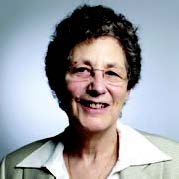 The overarching mission of the Adult Protective Services (APS) program in San Francisco is to protect elders and adults with disabilities from abuse, neglect, exploitation, and self-neglect. APS strives to help adults stay as independent as possible. Respect for the right of self-determination is a fundamental value that guides APS workers as they assist their clients.
The overarching mission of the Adult Protective Services (APS) program in San Francisco is to protect elders and adults with disabilities from abuse, neglect, exploitation, and self-neglect. APS strives to help adults stay as independent as possible. Respect for the right of self-determination is a fundamental value that guides APS workers as they assist their clients.
“But what do APS workers actually do?” This is a question that I have been asked countless times by social workers, policy makers, doctors, and community members alike. Since 2003, I have had the privilege of working with APS—first as a frontline worker, then as supervisor, and now as the director of San Francisco’s program. Although I know the APS program inside and out, I am acutely aware that the program remains a mystery to most.
This article is intended to shed light on the dynamic and multi-faceted role that APS workers carry out every day, as an integral part of your community’s safety net.
APS is a program made up of social workers who are passionate about helping their clients live free from abuse. In order to do this, they use a person-centered approach to assess their client’s needs and to identify strengths that will assist them to solve complex problems.
APS workers collaborate with partners, families, and their support system. This might involve running a family meeting, educating a spouse or partner about dementia, or coordinating a care plan among friends.
APS workers use their strong advocacy skills where it will assist their clients to remain independent. This might mean speaking to a landlord on behalf of a client that is facing eviction, or brokering for vital services on behalf of a client.
As social workers, APS workers encourage their clients to make decisions that will benefit their well being and maximize their independence. But as social workers, APS workers recognize the inherent right that adults have for autonomy. This may mean that an APS worker will respect a client’s right not to pursue recommended services, and the right to continue to engage in behaviors that might be considered risky.
Investigators
APS workers are also investigators. They interview clients, caregivers, and loved ones, as well as scammers and perpetrators, with the goal of fully understanding complex situations and evaluating allegations of abuse.
APS workers are charged with the role of protecting vulnerable adults who may be experiencing abuse. As such, APS workers conduct unannounced visits that will provide them with an objective view of the client’s circumstances.
When it becomes apparent that a crime has occurred, APS workers collaborate with law enforcement to protect their clients. APS workers advocate with SFPD and the District Attorney’s Office to encourage prosecutions when crimes have been committed against APS clients.
24-Hour Cycle
San Francisco’s Adult Protective Services program operates on a 24-hour cycle. Throughout the night, an APS worker and an APS Supervisor are responding to reports of abuse that come in through the emergency hotline.
If a call is received in the middle of the night that suggests that an elder or adult with disabilities is in imminent danger, the on-call APS worker will “roll-out” anywhere in the city to respond to the abuse situation. Three on-call workers share this responsibility throughout the weekend.
Diversity
As you might suspect, APS workers in San Francisco are representative of the city’s vibrant diversity. They speak 12 different languages and come from a variety of continents. APS workers are sensitive to the needs of individuals of all sexual orientations, and many self-identify with the LGBT community.
Prevention
APS workers come across tragic situations all too often. Although preventing abuse from occurring is a goal, it seems that more often than not, cases are referred to APS when it is almost too late. Reporting concerns to APS early on can save lives.
Building bridges and increasing trust are essential for preventing abuse. APS relies on neighbors, friends, and family, as well as those professionals that are considered to be mandated reporters, to call-in and report suspected abuse, and to partner around intervention.
In San Francisco, the APS program is part of the Human Services Agency’s Department of Aging and Adult Services. To report suspected abuse in San Francisco, you can call the 24-hour hotline at 415-355-6700. Caring professionals will be standing by ready to assist.
Jill Nielsen is the Program Director for the City and County of San Francisco’s Adult Protective Services (APS) program. APS is part of the city’s Department of Aging and Adult Services. Previously she worked as an APS Supervisor in Alameda County, where she also spent four years as an APS field worker. She is a Licensed Clinical Social Worker.
 Dr. Marcy Adelman oversees the Aging in Community column. For her summary
Dr. Marcy Adelman oversees the Aging in Community column. For her summary
of current LGBT senior challenges and opportunities, please go to: sfbaytimes.com/challenges-and-opportunties
Recent Comments